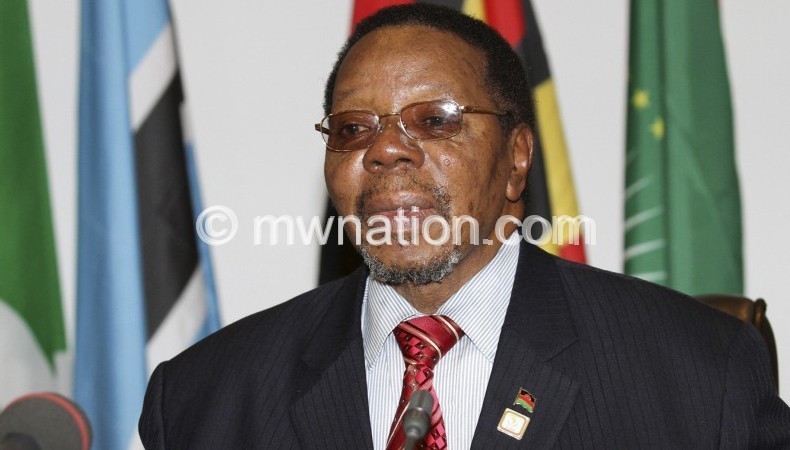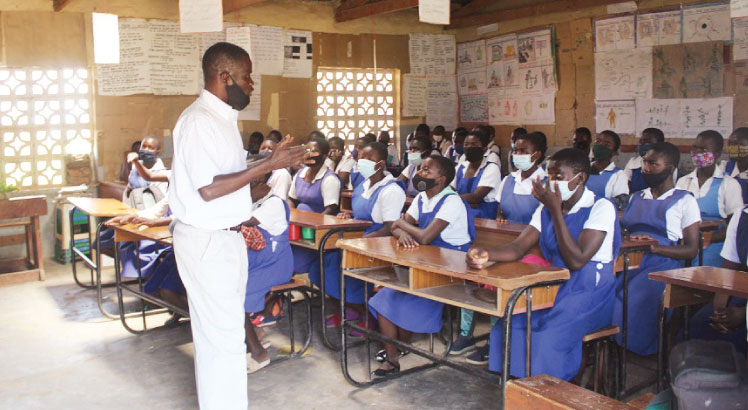Subsiding livelihood is no development model
Could anybody believe that only 40 years ago in 1975 present day South Korea was much poorer than Malawi?
Part of the reason has been an incredibly unfathomable preoccupation with tackling immediate and medium-term symptomatic social problems rather that laying down a long-term development foundation.

Most famous of these desperate innovations is what is called Farm Input Subsidy Programme (Fisp) whose origins can be traced to the 1970s, becoming more complex in the 1990’s and almost permanently grafted into the economic architecture by 2000. Food for work, public works for cash and a more sophisticated social cash transfer programme are now entrenched. To all this be added construction of houses for traditional leaders and the vulnerable with only slight variations to the approach over the past 40 years.
Considered individually or as a package, these programmes will not develop the country sustainably now or in the future. They are basically a bunch of ‘safety nets’ targeting ultra-poor households providing at best a form of social protection and poverty relief.
And the reasons are not far to seek.
One, these programmes are deceptive. They present an impression of progress while they fail completely to address broad challenges that retard development and never tackle holistically development needs of the poor. Monthly cash transfers of $14 will improve child nutrition, support education, reduce disease and alleviate impacts of HIV and Aids, but they will not give households the means of production for economic autonomy and national development.

The evaluations of cash transfer interventions in Malawi and beyond are full of nice human stories recounted by those who benefit from what is purely social support investment. Of course, positive experiences is what a poor person who lives on under a dollar a month will recount because with $14 a month, they have an income to afford food, keep children in school, travel to the clinic and generally prevent ill-health. But what else is there to assure a solid foundation and to inject energy for on going self development?
In a similar vein, it can be argued that food for work or public works for cash brings money into poor people’s pockets. Yet it is only moral to admit that this is only seasonal and rather patronising ganyu. In any case, citizens should not fix roads except on point of voluntary service. Government should fix roads and create different types of jobs for people to live decently.
Yes, ganyu will afford ultra-poor people the money to buy food and other basic human needs, but in so far as the programme is seasonal and small in value, it fails to empower the people enough to be able to advance on their own thereafter. Self-propulsion from initial capital is what constitutes development.
Two, housing projects are not any better, except perhaps in terms of the physical symbolism which so preoccupies Malawians. Subsidising housing has the potential to change the landscape, but will certainly not put money into people’s pockets. Instead, a rural housing loan scheme potentially ‘puts thousands under yoke’ and draws money away from people’s meagre sources to ‘service mortgages’, thereby reducing quality of life further for many in spite of improved accommodation.
But the greatest deterrent to the evolution of a free people-driven model of development is the Fisp. Evaluations by renowned economists, among them, Professor Ephraim Chirwa have found no direct impact on social welfare indicators of the beneficiaries

Data analysed in these studies do not support the vehement claims that Fisp directly improve development of assets at household levels much as to change economic and social status of targeted groups wherever they are. In the same manner, such evaluations have not been able to exert direct influence on the levels of income accruing to subsistence farmers.
Admittedly, with more options for money-making ganyu and increased availability of maize due to near-free inputs market, prices of maize are greatly depressed. However, I find this trend ordinary and insignificant because it simply means that the ultra-poor people targeted have ample food if ever and that those with money can afford the maize with relative ease. It does not make the subsistence farmer any better economically.
The argument that I present here is not whether or not Fisp has positive impacts because there are many positive, but ephemeral effects.
The issue is whether almost free inputs distributed to a proportion of a national population is a viable poverty reduction and or development model or it is simply a wasteful discriminatory welfare system which excludes other similarly poor, but non-farming citizens and entrenches dependency.

The same question I raise here could be raised with regard to direct cash aid to Malawi. For 50 years Malawi has received enormous sums of money in all conceivable currencies, but what is there to show for it? Is this not why many neo-modernists both inside and outside recipient countries argue for stoppage of direct cash aid?
Further to failure to drive the economy except for occasional cushioning of entrenched inflationary tendencies of poorly managed economies, targeting for those who actually benefits from Fisp and all other handout type development programmes can be most unreliable and politically manipulated such that millions deserving support are left as inputs are diverted to non-poor farming households.
Thinking in political terms, I would argue that development programmes based on the principle of subsidy are favoured by leaders not because they make genuine difference to people’s challenged livelihoods, but rather because they easily woe votes from rural populations and can be strong tools for control, patronage and over-lordship.
All over the developing world where such programmes rule, they are intensely political in the way they are designed, targeted and rolled out.
It is my view that it is infinitely hard to sharpen Fisp as a development model because it only feeds political whims and falls prey to cunning private sector traders.

After all in the majority of cases actual procurement and distribution of incredibly expensive inputs are coordinated through public service institutions which are themselves controlled by competing Cashgate warlords.
Generally, subsidies tend to feed the appetite of corrupt oligarchs and numerous hired petty traders who are broadly speaking tolerated by the security system in a craftily set up network of fraudsters.
At best subsidies such as Fisp are politically attractive and convenient strategies to leaders and compelling to some development partners as simple ready solutions to development and at worst they are mechanisms watched carefully and exploited by few on the altar of saving many.
As we conclude, let us note that the ultimate evil of handouts; the real downsize of putting whole nations on such crude forms of welfare is that it creates dependency. It erodes human dignity and nips in the bud good individual initiatives that could not only release energy for free people-drive development but could also turn around the fortunes of Malawi overnight.
I fear that some Malawians could have reached the end of their tether. Subsidies and State sponsored ganyu have killed people’s individually making some irreversibly dependent. This result, caused by the State itself, is almost criminal. The bottom line is that the greater the numbers of dependent people who are unable to produce and contribute to the broader economy, the harder it will remain to develop Malawi.
In the final analysis: I have said before that investing in agriculture is the panacea for Malawi’s development.
It will not work through subsidising consumption, dwarfing development instinct of the people or enslavement through rudimentary mortgages.





